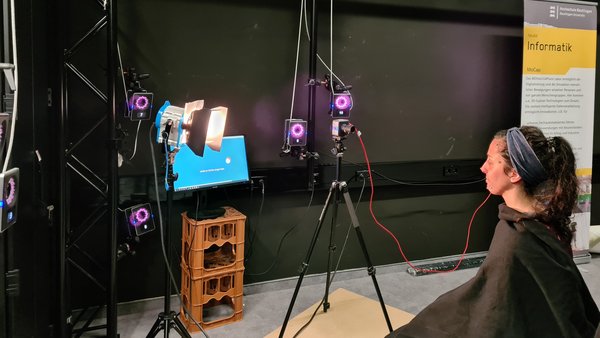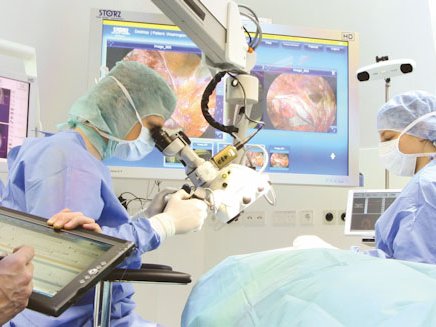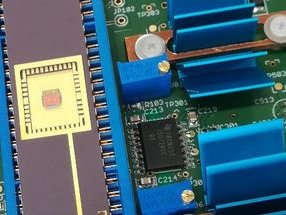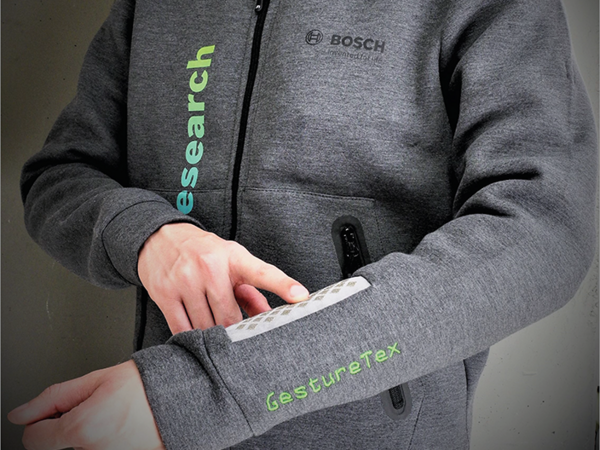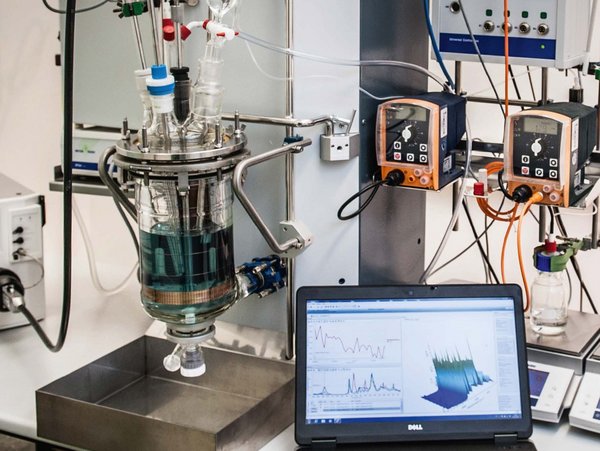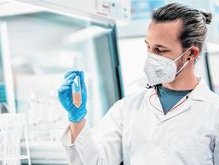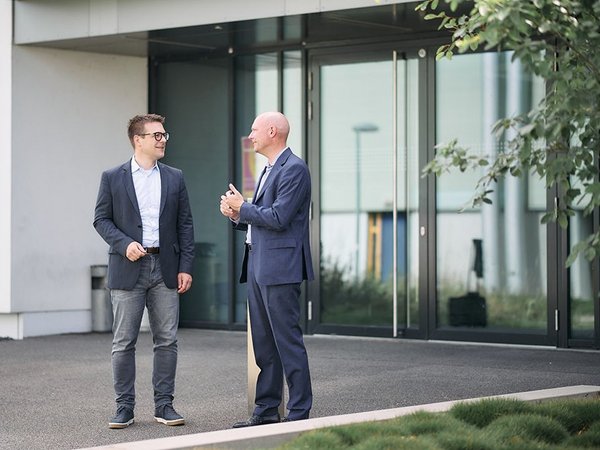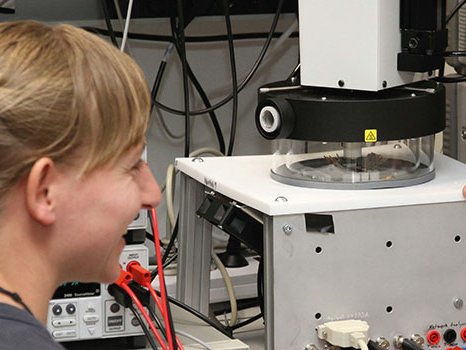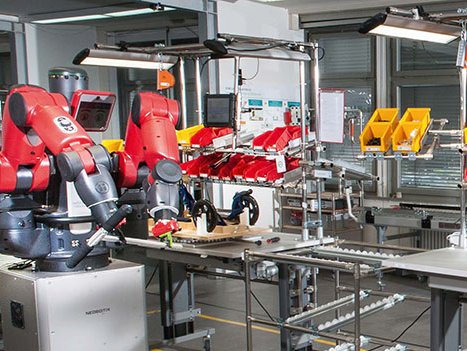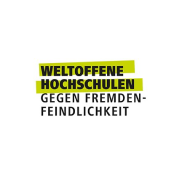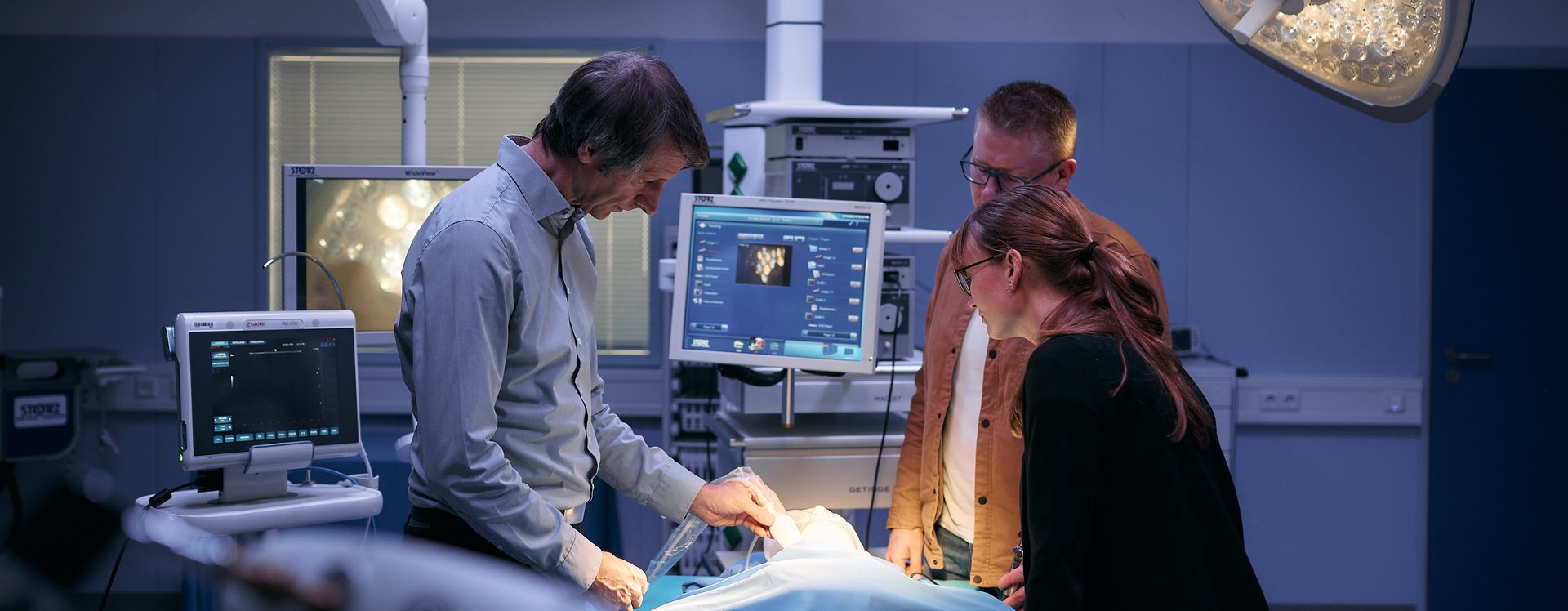
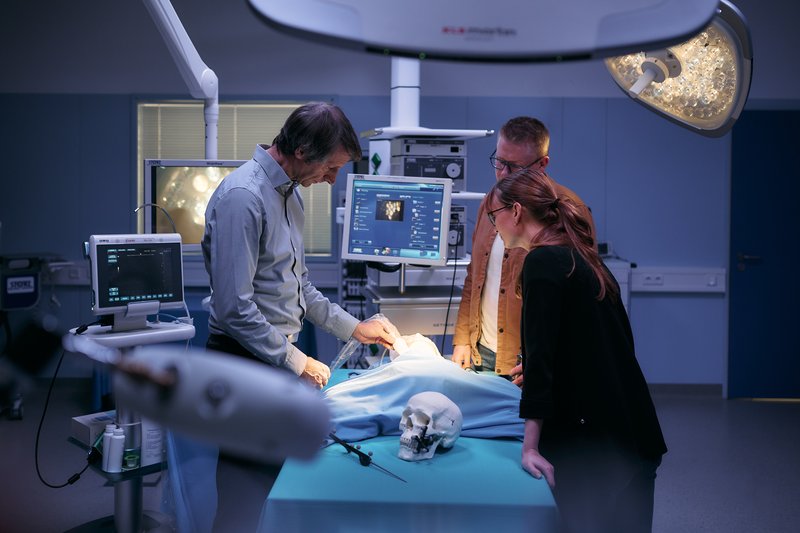
Research at Reutlingen University
Research at Reutlingen University is conducted under the umbrella of the Reutlingen Research Institute (RRI) - application-oriented, practical and closely interlinked with teaching, including on megatrends such as artificial intelligence, digitalisation and climate protection.
News

Ein starkes Signal für die Energiewende - Reutlingen baut mit Wasserstoff Brücken in die Zukunft
Einweihung der Wasserstoffinfrastruktur an der Hochschule Reutlingen
Read more
Großer Festakt an der Hochschule Reutlingen
Feierliche Verabschiedung des langjährigen Präsidenten Prof. Dr. Hendrik Brumme und Amtsübergabe an Prof. Dr. Sabine Löbbe als neue Präsidentin der Hochschule.
Read more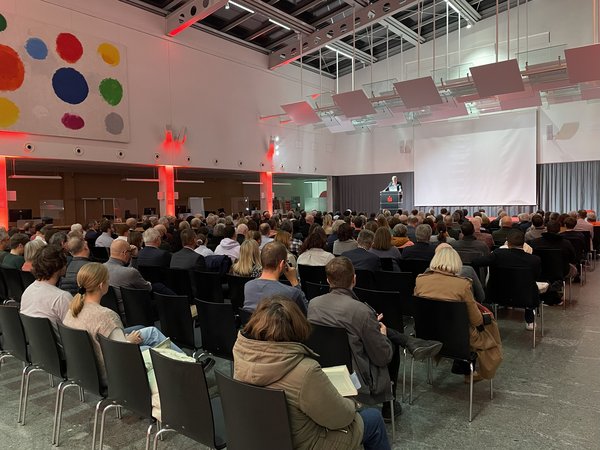
Was hat die Weltwirtschaft mit uns zu tun?
Veranstaltung "Wissenschaft für dich und mich" gibt Einblicke in Forschung zu internationalen Märkten und Lieferketten
Read moreFeatured articles from
our research magazine
The current Research Magazine "Artificial Intelligence" (PDF)

AI has a clear cutting-edge
Artificial intelligence is revolutionising the factory floor. But this does not mean that it will replace the factory workers, claim Professors Günter Bitsch and Paul Helmut Nebeling. In their projects on tool wear and tear and quality assurance in injection moulding, they show how AI can be put to good use – and benefit the workers.
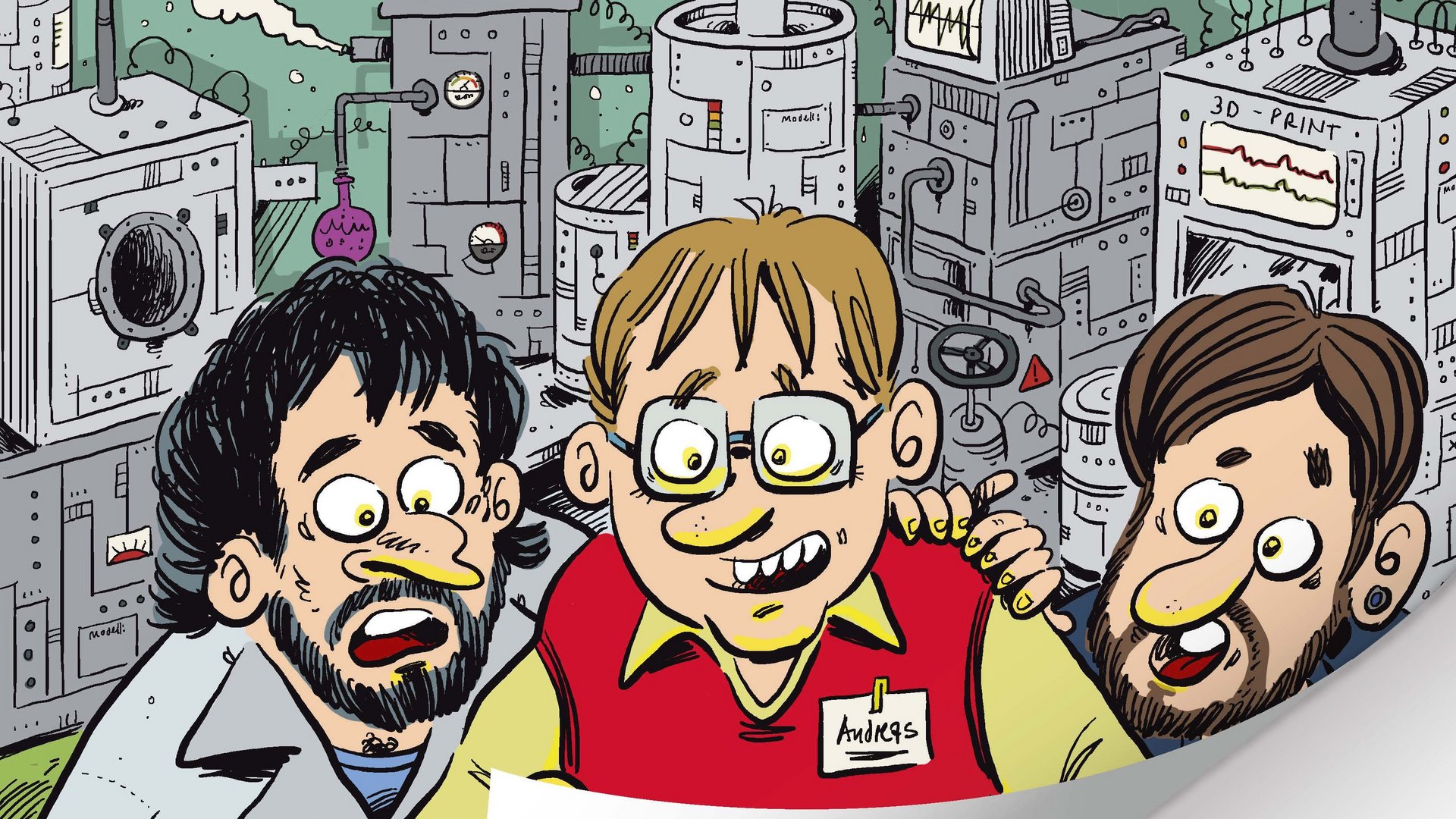
A Journey into the Nano World
'Goldy' is a miniature robot with integrated electronics, measuring only a few micrometres. It is capable of monitoring our metabolic processes, with the potential to transform personalised medicine. Funded by the Carl Zeiss Foundation, Professor Marc Brecht is collaborating with researchers at the University of Tübingen to develop an innovative three-dimensional printing process to create 'Goldy' in practice.
